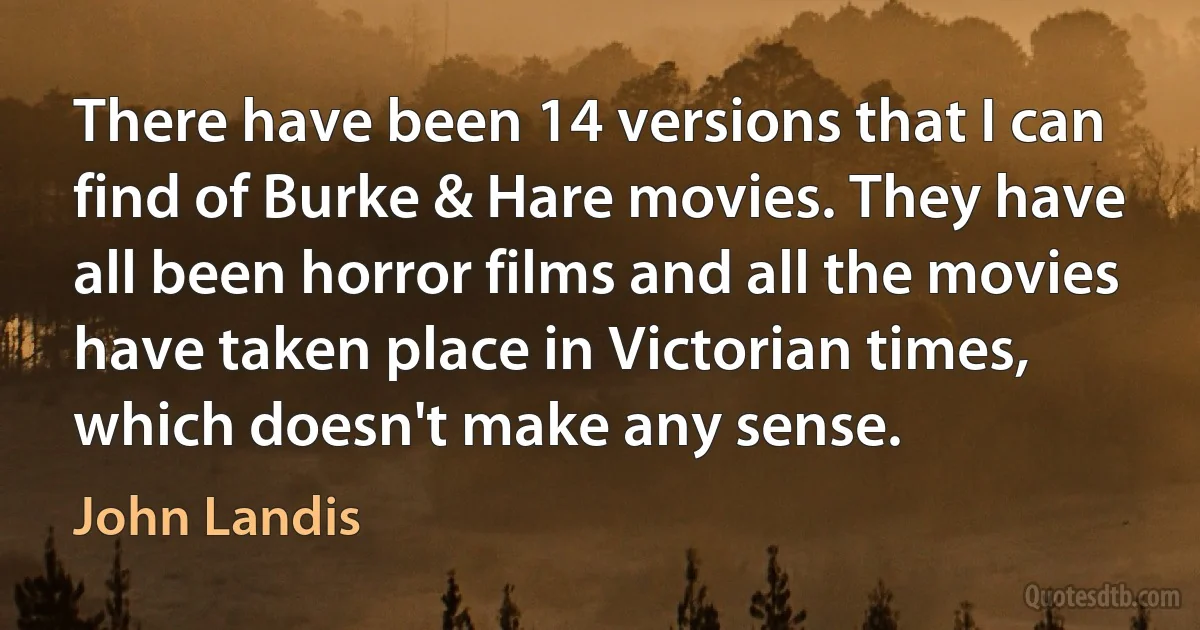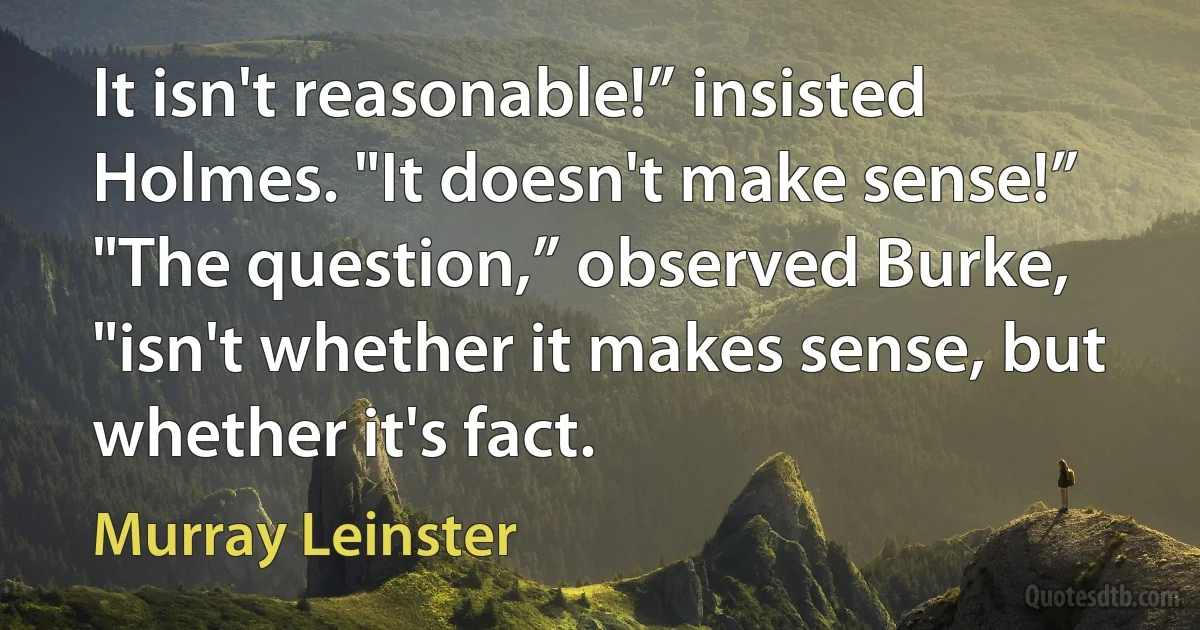Burke Quotes - page 2
Mr. Burke talked in very high terms of Dr. Adam Smith; praised the clearness and depth of his understanding, his profound and extensive learning, and the vast accession that had accrued to British literature and philosophy from these exertions, and described his heart as being equally good with his head and his manners as peculiarly pleasing. Mr. Smith, he said, told him, after they had conversed on subjects of political economy, that he was the only man, who, without communication, thought on these topics exactly as he did.

Edmund Burke
We . . . are no petty people. We are of the great stocks of Europe. We are the people of Burke we are the people of Swift, the people of Emmet, the people of Parnell. We have created most of the modern literature of this country. We have created the best of its political intelligence.

William Butler Yeats
Opposing the policies of the American state is not synonymous with opposing 'America.' It is possible to disavow every single action taken by the U. S. government and still love the 'little platoons' of America, as Edmund Burke described a man's social mainstay-his family, friends, coreligionists, coworkers. By logical extension, it is dishonest to malign those who assign the 'bad' category to the state, on the ground that they hate 'America.

Ilana Mercer
A frustrated or unhappy animal can do relatively little about its tensions. A human being, however, with an extra dimension (the world of symbols) to move around in, not only undergoes experience, but he also symbolizes his experience to himself. Our states of tension--especially the unhappy tensions -- become tolerable as we manage to state what is wrong -- to get it said -- whether to a sympathetic friend, or on paper to a hypothetical sympathetic reader, or even to oneself. If our symbolizations are adequate and sufficiently skillful, our tensions are brought symbolically under control. To achieve this control, one may employ what Kenneth Burke has called "symbolic strategies" -- that is, ways of reclassifying our experiences so that they are "encompassed" and easier to bear. Whether by processes of "pouring out one's heart" or by "symbolic strategies" or by other means, we may employ symbolizations as mechanisms of relief when the pressures of a situation become intolerable.

S. I. Hayakawa
Not one glance of compassion, not one commiserating reflection, that I can find throughout his book, has he bestowed on those who lingered out the most wretched of lives, a life without hope in the most miserable of prisons. It is painful to behold a man employing his talents to corrupt himself. Nature has been kinder to Mr. Burke than he is to her. He is not affected by the reality of distress touching his heart, but by the showy resemblance of it striking his imagination. He pities the plumage, but forgets the dying bird. Accustomed to kiss the aristocratical hand that hath purloined him from himself, he degenerates into a composition of art, and the genuine soul of nature forsakes him. His hero or his heroine must be a tragedy-victim expiring in show, and not the real prisoner of misery, sliding into death in the silence of a dungeon.

Thomas Paine
You might be thinking who is this Harry Potter girl? And what is she doing speaking at the UN. And it's a really good question. I've been asking myself the same thing. All I know is that I care about this problem. And I want to make it better.
And having seen what I've seen - and given the chance - I feel it is my responsibility to say something. Statesman Edmund Burke said: "All that is needed for the forces of evil to triumph is for good men and women to do nothing.”
In my nervousness for this speech and in my moments of doubt I've told myself firmly - if not me, who, if not now, when. If you have similar doubts when opportunities are presented to you I hope that those words might be helpful.

Emma Watson
For me as a British Conservative, with Edmund Burke the father of Conservatism and first great perceptive critic of the Revolution as my ideological mentor, the events of 1789 represent a perennial illusion in politics. The French Revolution was a Utopian attempt to overthrow a traditional order - one with many imperfections, certainly - in the name of abstract ideas, formulated by vain intellectuals, which lapsed, not by chance but through weakness and wickedness, into purges, mass murder and war. In so many ways it anticipated the still more terrible Bolshevik Revolution of 1917. The English tradition of liberty, however, grew over the centuries: its most marked features are continuity, respect for law and a sense of balance, as demonstrated by the Glorious Revolution of 1688.

Margaret Thatcher
I have found one just man in Gomorrah-Adam Smith, author of the Wealth of Nations. He was the Duke of Buccleuch's tutor, is a wise and deep philosopher, and although made commissioner of the customs here by the Duke and Lord Advocate, is what I call an honest fellow. He wrote a most kind as well as elegant letter to Burke on his resignation, as I believe I told you before; and on my mentioning it to him, he told me he was the only man here who spoke out for the Rockinghams.

Adam Smith



